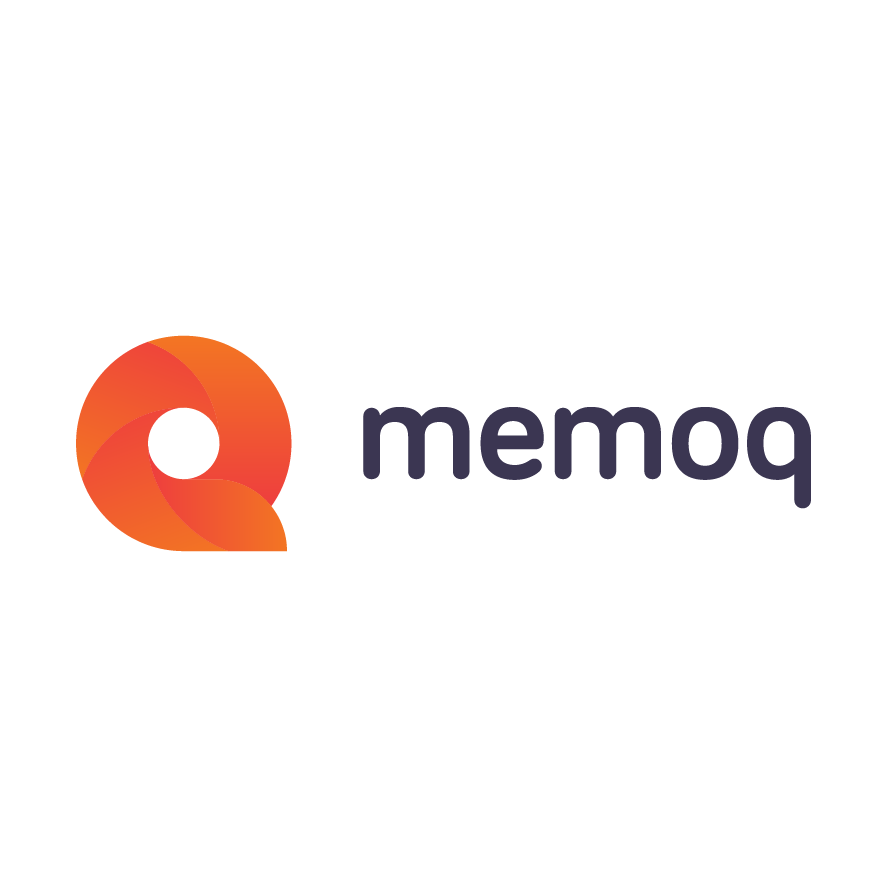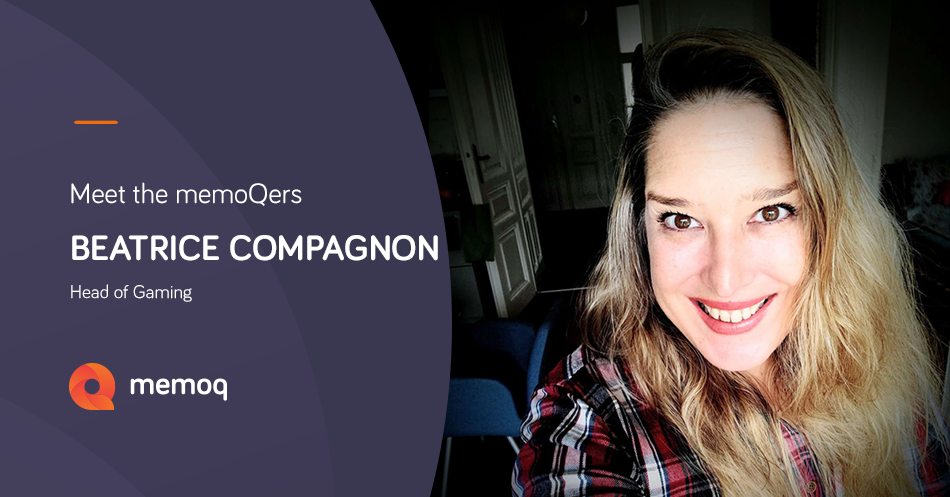Continuing our series of interviews with memoQ team members, we introduce Béatrice Compagnon, Head of Gaming at memoQ.
Hello and thank you for taking the time to answer some of our questions. First, we would like to ask you to introduce yourself a little bit. Can you tell us where you are from, and where you live right now?
I guess I am kind of the wandering soul of the company 😉. I am French and Canadian and live in Vietnam but, due to the Covid situation, I have been unable to go home since March 6th.
How did you get to know memoQ, both the company and the product?
I used to work as a games translator and the day I discovered memoQ changed my life. I moved from Trados 7 and never looked back. Later, I made games localization companies I work for adopt it as well and when I created my own agency, the first thing I did was buy a server.
This is why memoQ asked me in 2012 to help them get into the gaming market. I worked for memoQ for a year before going back to my own company. I rejoined memoQ in December 2018 as an account manager and was promoted to Head of Gaming in August 2019.
Tell us more about your current position: what does a typical day for you look like?
The work is varied so there is no typical day. Since the Gaming Unit caters to all the needs of gaming customers, the work ranges from client meetings to discuss custom-made solutions, to introducing memoQ to new leads, to renewing existing contracts. We also partner with different tools that extend beyond what memoQ does and are always on the lookout for the latest technology.
Tell us more about your team. How many members are there, what are their roles, and what do you like most about working with colleagues?
The Gaming Unit is a team of three right now. Working along with me are Gabor Kovacs, solution engineer and gaming specialist, and János Szabó, our coder who crafts the custom-made filters and tools for our clients. Working with the guys is a lot of fun. We get to be creative and people in the games industry are very interesting.
What makes your team stand out? What is it that drives you all to succeed?
Working for the gaming industry is motivation in itself. Our clients are the most amazing and humble people. It makes us strive to give our best every day and to find creative solutions for their issues.
Our team comes from diverse backgrounds and we complement each other perfectly. I come from the other side of the games localization industry and can bring insights about what users want and workflow processes; Gabor brings his knowledge as an IT security expert to the table; and Janos is the man who can code and whip up scripts.
What did you like about memoQ as a company when you first joined, and what do you enjoy most about your work now?
Before I got to know the people in the company, I fell in love with the software. And after joining, it was a pleasure to discover a bunch of smart, enthusiastic people who were driven by the same will to make the best possible tool while having fun doing it. Even though the company has grown a lot, the spirit remains the same. I also enjoy the amount of autonomy we are given and the possibility to bring our own ideas to the table. Teamwork is very important and we help each other out whenever we can.
What do you think are the strongest points of memoQ (both as a product and a company) that make us stand out in the industry?
On the product side, we have the most complex and flexible tool in the industry. I see memoQ as the heavy hitter, as in it can deal with almost anything, and if it can't, we can customize it until it does. We may not have a turnkey solution offering everything from a marketplace to an invoicing system, but we are the best at what we offer: a localization management software that can be integrated into complex systems and save customers time and money without compromising on quality.
On the company side, we are one of the few independent companies in our field that can look back on organic growth, without any outside investors, and that still has much of the original team involved. This means that we haven’t had to compromise on the direction the software took…and, that we own our mistakes as well.
Let us turn to some questions specific to your position. Here goes: what do you enjoy most about the gaming localization industry? What factors differentiate gaming localization from other fields of translation?
I have been working in the games localization industry in one position or another for the past 20 years and could not imagine doing anything else. I have met the smartest, most humble and inspiring people, have had more fun than I could imagine in a work environment, and have made friends for life. It is a fast paced and demanding industry, but once you are in, you don’t want to even think about leaving.
When working with gaming companies, what is your approach to gaming localization? Are there any trends in gaming localization with similar requests and requirements, or is each company different?
Each gaming company has its own unique workflow. Most importantly, localization has to fit into a company’s entire software and production ecosystem.
Localization is kind of a stepchild in the game production process and it needs to be very flexible. One of the most interesting challenges in our job is to listen to what customers are doing and how they are doing it, and then to figure out what would be the best configuration for their specific case. No two clients are the same and we build relationships over time because things evolve constantly.
How has the pandemic affected you and your team’s work? Have you seen any changes? Are there any differences in the types of requests you receive or types of new opportunities? How has it affected you personally?
I guess the gaming industry is one of the few industries that have not been affected negatively by the global pandemic. When people have to stay home, they play.
On a more personal level, I was on a business trip to Seattle when the pandemic hit in March and I have not been able to go back home to Vietnam, where I live, since then. It has been an interesting experience to be “displaced” for six months. I plan my life in two-month increments while bouncing around the world. I am looking forward to maybe being able to resume normal life by the end of the year.
We were already working remotely before the pandemic so in that regard there haven’t been a lot of changes. The biggest difference is that traveling to conferences and meeting clients will be a thing of the past for a while and we miss the face-to-face contact. I used to be on the road about every two months or so, at least, but I think that now, when I finally make it home, I will be OK with not going anywhere for a year.
Last, but not least, we would really like to ask you, as Head of Gaming at memoQ: what is your favorite game of all time and why is it so special to your heart?
Command & Conquer: Red Alert. One of the first games I ever played and so many weekends and nights wasted with roommates, fighting over the best strategy.
Want to read about memoQ’s solution for the gaming industry?

memoQ
memoQ is among the world's leading translation management systems. The favorite productivity tool for translation professionals around the globe.





